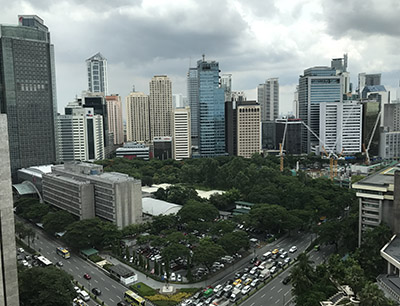 By Kyna C Pasamba
By Kyna C Pasamba
Recent changes to labour laws in the Philippines attempt to clarify the status of contractors and subcontractors in certain industries.
It was a common query in the business sector whether firms or companies in the business process outsourcing (BPO) or knowledge process outsourcing (KPO), and in the construction industry were covered by the rules of contracting and subcontracting arrangements previously embodied in orders issued by the Department of Labor and Employment (DoLE).
The recent issuance of Department Order No. 174, Series of 2017 did not help, given that the DoLE made an express but solitary exclusion of contracting or subcontracting arrangements in the construction industry from the coverage of DO No. 174. Hence the DoLE, through Department Circular No. 1, Series of 2017, once again clarified the non-applicability of the new rules to BPOs or KPOs. In fact, the circular made additional delineations.
Business process outsourcing
At the onset, DO No. 174 only applies to a contracting and subcontracting arrangements involving three parties: a principal, a contractor and the workers engaged by the latter to accomplish a service that involves a singular activity, eg, janitorial, security, merchandising and other specific production work.
Accordingly, it does not contemplate information technology-enabled services involving an entire or specific business process such as business process outsourcing, knowledge process outsourcing, legal process outsourcing, IT infrastructure outsourcing and back office operations/support, among others. Such companies are governed by other applicable provisions under the Labor Code and the Civil Code.
Construction industry
Licensing and the exercise of regulatory powers over the construction industry is lodged with the Philippine Contractors Accreditation Board (PCAB) of the Construction Industry Authority of the Philippines (CIAP), and not with the DoLE. In this regard, Department Circular No. 1, series of 2017 expressly provides that contracting or subcontracting arrangements in the construction industry under the licensing coverage of the PCAB shall be governed by Department Order No. 19, Series of 1993 (Guidelines Governing the Employment of Workers in the Construction Industry); Department Order No. 13, Series of 1998 (Guidelines Governing the Occupational Safety and Health in the Construction Industry); and the DoLE-DPWH-DILG-DTU and PCAB Memorandum of Agreement-Joint Administrative Order No. 1, Series of 2011 on coordination and harmonisation of policies and programmes on occupational safety and health in the construction industry.
However, it should be noted that contractors licensed by the PCAB, who are nonetheless engaged in contracting arrangements in addition to or other than construction activities, shall be required to register under DO No. 174.
Private security agencies
Department Circular No. 1, series of 2017 expressly provides that except for registration requirements provided for in DO No. 174, contracting or subcontracting arrangements in the private security industry shall be governed by Department Order No. 150, Series of 2016 or the Revised Guidelines Governing the Employment and Working Conditions of Security Guards and Other Private Security Personnel in the Private Security Industry.
Other contractual relations
In cases that involve a bilateral contract between a principal and an independent contractor, it is the Civil Code of the Philippines and other special laws that shall govern these contractual relations.
Indeed, given the right of an employer to use various processes that would ensure the continued viability of his business, it can be expected that other industries in the business sector will seek to lobby an outright exclusion from the rules of contracting and subcontracting arrangements. We may as well anticipate that certain industries using complex business processes will strive to rationalise an excepted status from the aforesaid rules. In any event, the rules on outsourcing, or any law for that matter, should accommodate measures of flexibility that would aptly cater to the realities and imperatives of management and the work force.
The article was first published in Business World.
ACCRALAW Tower, 2nd Ave. Cor. 30th St., Bonifacio Global City
Taguig City, Metro Manila, Philippines
Tel: (632) 830-8000, / Fax (632) 4037007 or (632) 4037008
E: kcpasamba@accralaw.com W: www.accralaw.com


